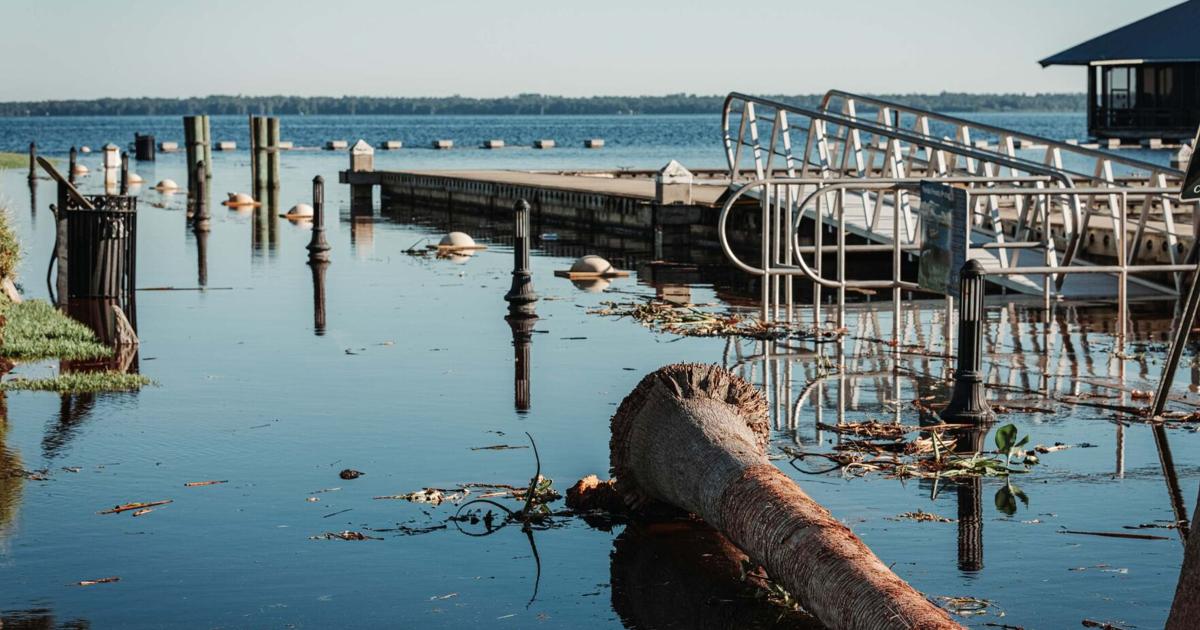Florida homeowners face prospect of massive post-Hurricane Ian insurance rate hikes, experts warn | Real Estate

Separating the spoiled from the splendid among the plastic carton raspberries and blueberries, veteran supermarket employee Gary Wheeler looks up and asks, “By the way, did your homeowners property insurance go up?”
Before he hears the reply, he says, “Mine went up $800 dollars! I can’t afford $80 more a month. I’m maxed out on hours as it is.”
As a relatively new home buyer, Wheeler represents a microcosm of property owners in Florida being affected by rising insurance rates, along with the standard increases in sewer and school taxes, and mandatory flood insurance in some cases, for example.
Now, he’s smelling something rotten — and it’s not in the produce aisle.
Insurance rates have been soaring even before Hurricane Ian thundered into the Fort Myers area this summer.
Now, Wheeler and thousands of others are bracing for a bigger impact — on their bank accounts.
Mark Friedlander, director of Corporate Communications with the New York-based Insurance Information Institute, a nonprofit research and education organization providing consumers with a better understanding of insurance, warned of impending, dramatic rate hikes in several interviews last week.
“We expect the average increases to escalate after Ian, starting in 2023, where increases over 40% or more could be very common across the state, on average,” he said. “We are confident that Florida’s insurance market will become more unstable going forward (regarding the lack of financial stability for smaller, regional insurance firms).”
Since February, six Florida insurance companies — Southern Fidelity Insurance Co., Weston Property and Casualty Insurance Co.; Lighthouse Property Insurance Corp.; Avatar Property & Casualty Insurance Co.; St. Johns Insurance Co.; and FedNat Insurance Co. — were declared insolvent.
Friedlander, based in St. Johns, a suburb of Jacksonville, said Florida homeowners already are paying the highest premiums in the U.S. – an average of $4,231 across the state, nearly triple the U.S. average of $1,544.
“Most Floridians, two years ago, might have been paying maybe $1,500, and now it’s $3,000,” he said. “… The average increase homeowners have seen this year in Florida is 33% versus the U.S. average of 9%.”
Kyle Ulrich, president and CEO of the Florida Association of Insurance Agents, representing 2,200 independent agencies and some 20,000 licensed professionals, said his clients have never seen the situation worse than it is now, a “crisis” he called it.
“Actually more than a crisis,” he told Islander News this week.
Even his personal policy has climbed 50% in two years “and I live in Tallahassee” (not close to the coastline), he said.
“Now, 40% (more)? I don’t know many people who can afford to be in that situation, but it’s indicative of how (and where) this market has gotten to,” Ulrich said. “Our members are not happy. These agents get paid (on) commission. Now, they are having to deliver this bad news every single day.”
The insurance mayhem, he said, is focused particularly on Florida, specifically in the Miami, Key West, Fort Lauderdale areas.
“Ever since Hurricane Andrew, it’s probably been one of the most troubled areas and … not a lot of carriers are willing to write policies,” he said. “Miami-Dade, in particular, has been a real hotbed for fraud and abuse (when it comes to claims and litigation).
“Nationwide, there’s been a harder market for property insurance, but what Floridians are facing is unique. Not many other states face the challenges of affordability AND availability.”
Friedlander said, in one of his interviews, “The fact so many insurance companies are in this position now, with the expected high claims and high levels of litigation, it could force (more) smaller companies out of business.”
In December, Florida’s Legislature will hold its second special session in six months to determine its next approach.
What could they do and what should they do is a matter of speculation and opinion.
Ulrich said they should “finally, once and for all, address the runaway litigation. They tried a couple of years ago to address it, with nominal results.
“They (should) eliminate the one-way attorney fee statute … it just creates way too many incentives for bad actors to get involved for unscrupulous (behavior). It should be left between the insurance company and the person who is insured.”
In Florida, the attorney fee statute is intended to shield policyholders against legal bills if they want to sue their insurers for failure to pay or for low-balling claims. But critics argue that unscrupulous contractors, armed with assignment of benefits agreements, exploit the law to file lawsuits, knowing they won’t be on the hook for legal costs.
Wheeler asked if the legislature could set cap limits on insurance rate hikes.
“I supposed they could cap it; they’ve done it in the past, but it just led to more insolvencies,” Ulrich said.
He brought up an analogical example, saying that if the price of milk had to be set at $10 a carton, would grocery stores continue to sell it for less, at a loss?
“Of course not,” he said. “It’s pretty simple economics. Six insurance companies have gone bankrupt this year. I’m not sure how capping insurance rates promotes capital. And I’m not being naive.”
On Nov. 1, state-managed Citizens had no choice but to raise its rates 6.4% for new and existing (when it comes time for renewal) policies after getting approval from state legislators earlier this year. The hike could be as high as 11% in some cases.
“You should be very happy to accept that renewal because the rate increase is only going to average 6.4% across the state,” Friedlander said, comparing the private insurers’ average hike of 33%.
But, not everyone can get Citizens Property Insurance. For example, if your home is appraised higher than $700,000 or if you have had repeated claims, especially with structural problems, you’ll likely be denied.
As of Sept. 30, Miami-Dade County led in the number of Citizens policies written, 212,511 structures (20% of all its accounts) at a total insured value of $71.756 billion. Broward and Palm Beach were next. Overall, Citizens covers 1,081,575 policies in Florida at a total insured value of $380.450 billion.
“We would not be in this predicament if lawsuits being filed against property insurers were not completely out of control,” said Friedlander, noting that Florida makes up nearly 80% of all insurance lawsuits in the country.
So, what advice can Ulrich give property owners?
“Well, they don’t have much of a choice if they have a mortgage because any (mortgage lender) will want to protect its collateral,” he said. “If you’re in a high hazard flood zone, they’ll require flood insurance, as well.
“It all makes the consumer think, ‘Can I really afford this home?’ Normally, the only consideration would be if you had an adjustable (mortgage) rate, but some never take into account property taxes and insurance rates, which usually tend to go up, so homeowners need to think about all that.
“Still, it’s worth shopping around and talking to an agent.”
One bright spot, at least, is from now until Nov. 28, insurers cannot cancel or drop policies, and the insurer still has to cover the property through Nov. 28, even if a renewal is scheduled.
That brings us back to Wheeler, who is looking to cut his costs, as evidenced by the solar panels he had installed this year to minimize his electric bill. Now, he will gamble on spending about $200 for an updated 4-point mitigation inspection that might lower his premium.
In the meantime, he will be intent on hearing what the Florida Legislature decides at the next session.
“They have to do something, right?” he asked.


